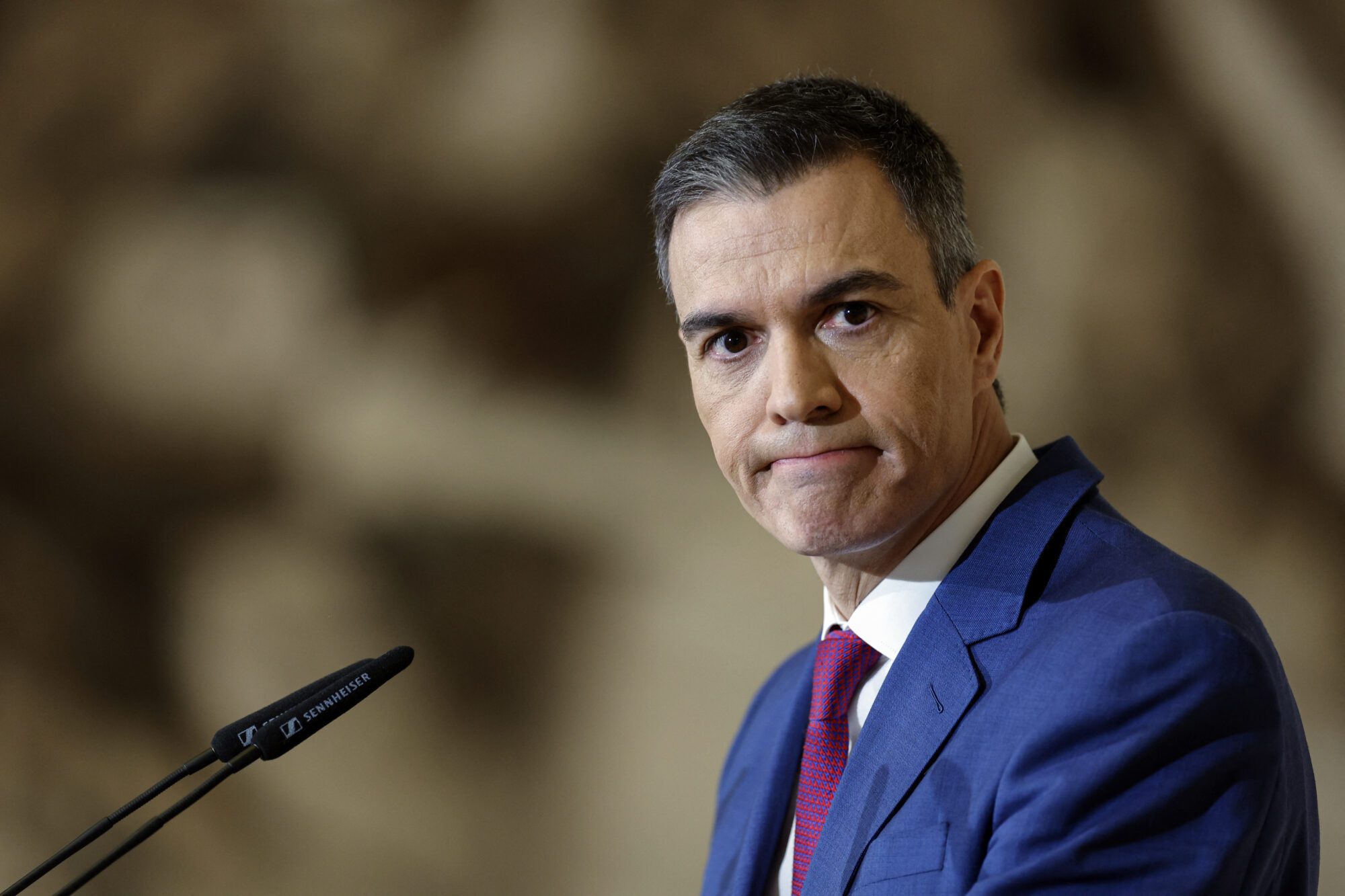
OSCAR DEL POZO / AFP
In a short and anti-climatic press conference, Spanish Prime Minister Pedro Sánchez announced he had decided to remain as leader of his country’s government.
“I share my decision and, I have informed the head of State: I have decided to continue, with more strength if possible, at the head of the Presidency of the Government,” he stated from Moncloa, the prime ministerial residence.
Taking five days of reflection prior to not resigning proved part of a strategy to reinforce his weak premiership. Party and supporters took advantage of the weekend to organize demonstrations in his favor, a “social mobilization” he claimed influenced the decision to stay on.
Sánchez kept the nation in suspense for five days when, last Wednesday night, he said he was stepping back from his public agenda and “reflecting” on the possibility of resigning after a court opened an investigation into his wife Begoña Gómez on suspicion of corruption.
“I need to stop and think” in order to decide “whether I should continue to head the government or whether I should give up this honor,” he wrote in a letter posted on X, formerly Twitter. He said that he had to consider the good of his family, particularly his wife. He had given himself the deadline of Monday to announce his decision and had made the unprecedented move without first informing the king, the government, or his own party.
For weeks, various Spanish media had been reporting on the rather clandestine activities of Begoña Gomez, such as a meeting with Air Europa executives shortly before the company was awarded a large government bailout. In 2020, not long after Sánchez had begun his first full legislative term as prime minister, Gomez was appointed chair of Competitive Social Transformation at the Complutense University of Madrid, despite not even holding a university degree. The essential purpose of the position is to connect private companies with public funds, which are ultimately managed by her husband. But some suspected that her activities in fact broke laws on influence trafficking.
A Madrid court said earlier on Wednesday that it had “opened an investigation into Begoña Gómez for the alleged offense of influence peddling and corruption” in response to a complaint by Manos Limpias (Clean Hands), an anti-corruption pressure group whose leader is linked to the “far right.” The group Haz Te Oír has since filed its own complaint, as well. Not surprisingly, the initial recommendation of the state prosecutor was to close the case brought by Manos Limpias, but a judge must still decide.
Sánchez’s government has been mired in several corruption scandals and this one seemed to be the straw to break the camel’s back for this slippery political opportunist, though analysts also knew any scenario was possible.
A threatened resignation that didn’t materialize was just the latest tactic in the sorry pursuit of power by Sánchez. However, Spanish voters do not have limitless patience, as shown by this weekend’s stage-managed demonstrations in support of Sánchez, which were smaller than recent ones opposed to his regime.
